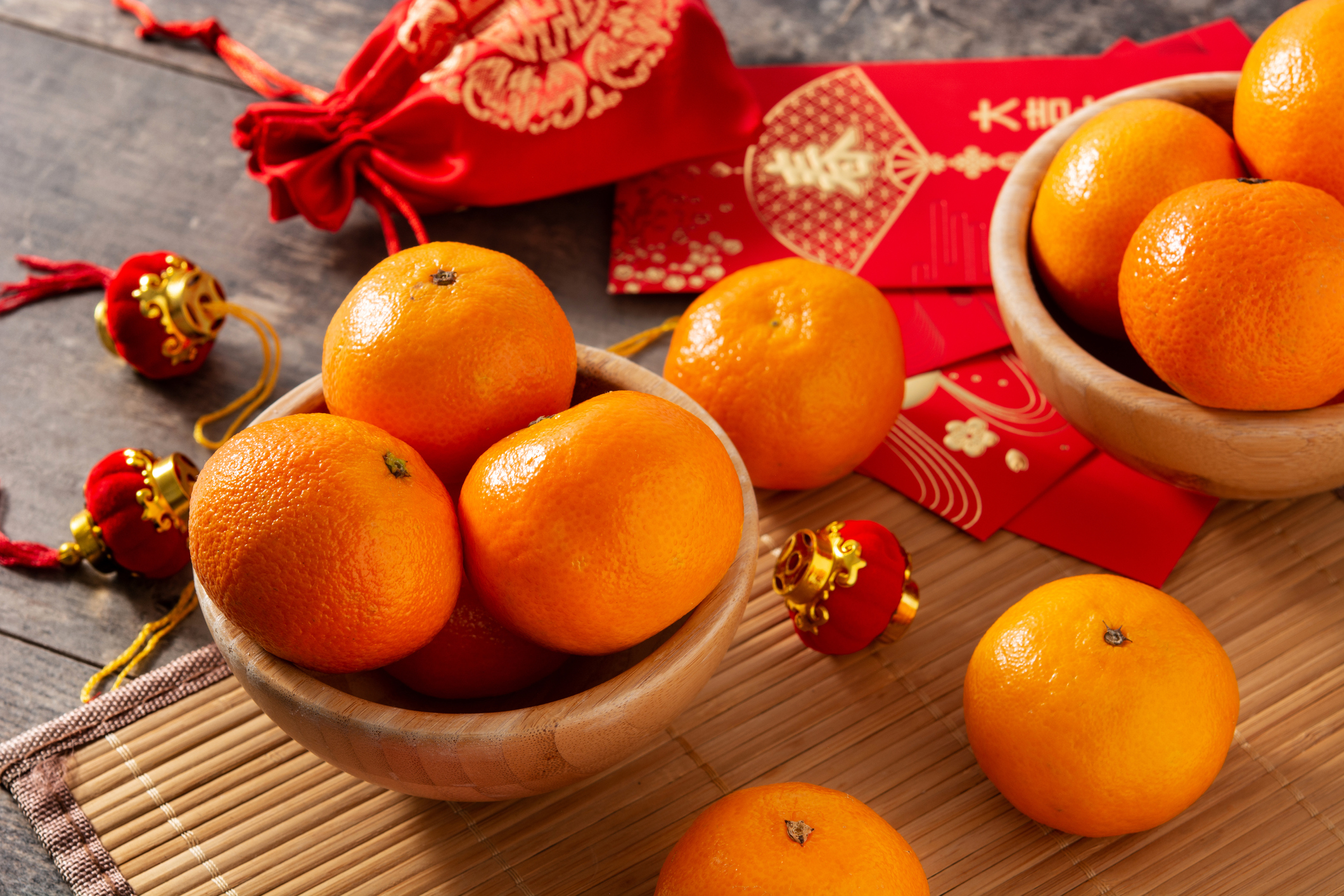
As families gear up for the Year of the Dragon, beginning Feb. 10, no Lunar New Year celebration would be complete without mandarin oranges, the sweet, tangy, and conveniently peelable fruit adorning decorated homes and eaten by visitors as a snack.
The ubiquity of the fruit during the festive season has a long history. Since at least the Qing dynasty, Chinese parents would place fruits like mandarin oranges, lychees, dates, or persimmons beside the pillows of their children, along with red envelopes containing money under the pillow, to ward off folkloric monsters. The children would then eat the fruits upon waking up the next morning.
There are multiple explanations for why mandarin oranges have come to be considered such a lucky symbol—a major part of which comes from mere pronunciation. Some say the Mandarin pronunciation of the fruit (ju) sounds like the word for “good luck” (ji). Others point to its Cantonese pronunciation (gam), which is the same as the word “gold.” The Chinese are known for a good amount of “luck talk”—the practice of attributing superstition to certain words and phrases—during Lunar New Year, a tradition believed may herald good fortune for the rest of the year. (Other fruits considered auspicious in Chinese culture include the apple, a homophone for “safety,” and the lychee, homonymic with “profit”—though neither, of course, are nearly as popular as the mandarin come Lunar New Year.)
More From TIME
Read More: 5 Things to Know About Lunar New Year and How It’s Celebrated Across Asia
Besides having an auspicious ring to its name, the reddish golden hue and round shape of mandarins are also widely seen as symbols of good luck. They’ve even inspired Chinese art spanning thousands of years: the ancient poem The Orange Tree, widely attributed to Warring States-era poet Qu Yuan, sings praises of a young man with the fruit and tree as its central metaphor; a letter to a friend by Jin Dynasty writer Wang Xizhi, known as the greatest calligrapher in Chinese history, accompanied by a gift of oranges, remains preserved as one of his most famous passages almost two thousand years later. Meanwhile, in Japan’s Wakayama prefecture, famous for growing mandarin oranges, there’s a shrine dedicated to the god of the mikan, also known as the satsuma mandarin.

Today, the mandarin remains a popular fruit, so much so that people will shell out huge sums for the highest quality they can find. (In 2020, a crate of satsuma mandarin oranges in Japan was auctioned for nearly $10,000.) Meanwhile, the rest looking to buy regular, affordable mandarins usually have to deal with demand-driven price hikes during Lunar New Year, when the fruit becomes practically an every-household necessity for festive celebrations.
In southern China, oranges are given during Lunar New Year, a tradition that has since spread to Southeast Asian countries like Singapore, Malaysia, and Indonesia with large ethnic Chinese populations. Mandarin oranges are exchanged in pairs—even numbers are generally thought to be auspicious while odd numbers are frowned upon—among relatives as an act of well-wishing. Those with stems and leaves still attached carry the extra symbolism of longevity and fertility.
In Japan, during Lunar New Year, the mandarin is often put on top of a mirror rice cake (kagami mochi)—made of two round rice cakes stacked on top of each other. While it was traditionally topped with a bitter orange called daidai (chosen for sounding like the phrase “generation to generation”), it has since been commonly replaced with mikan, another type of mandarin orange that’s typically sweeter.
Meanwhile, in South Korea, the fruit is not as tightly linked to Lunar New Year—celebrated as Seollal—as it is among its neighbors. But the country’s historical love of mandarin oranges has nevertheless proven perennial, with the fruits commonly associated with luxury, bought as gifts, and enjoyed all year round.
More Must-Reads from TIME
- How Donald Trump Won
- The Best Inventions of 2024
- Why Sleep Is the Key to Living Longer
- Robert Zemeckis Just Wants to Move You
- How to Break 8 Toxic Communication Habits
- Nicola Coughlan Bet on Herself—And Won
- Why Vinegar Is So Good for You
- Meet TIME's Newest Class of Next Generation Leaders
Contact us at letters@time.com